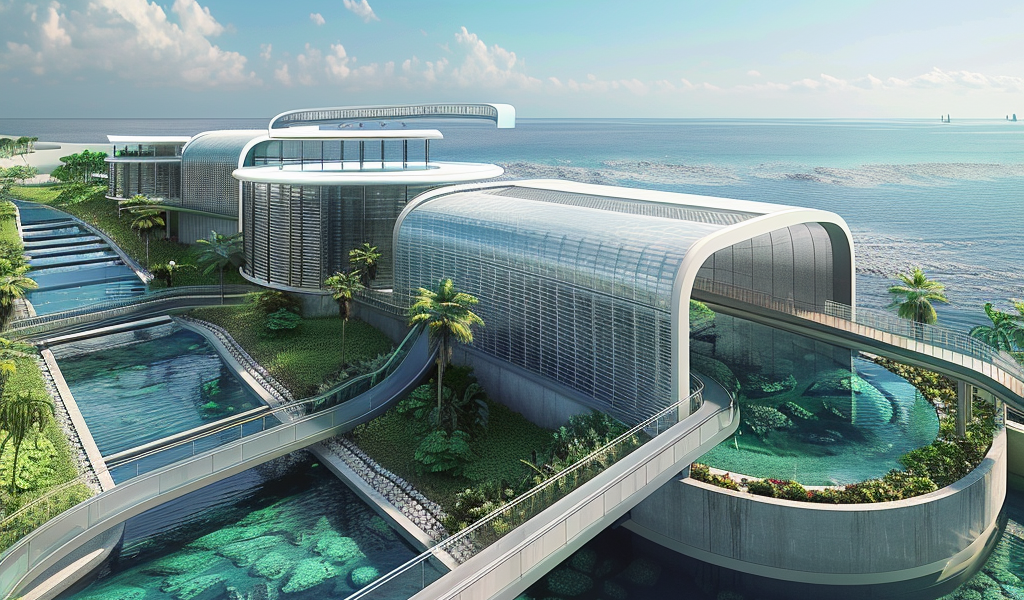UCLA Institute for Carbon Management and Equatic to Build the World’s Largest Ocean-Based Carbon Removal Plant in Singapore
The world is gearing up for a major breakthrough in the fight against climate change as UCLA and its startup Equatic collaborate to build the largest ocean-based carbon removal plant in Singapore. The ambitious $20 million project aims to remove 3,650 metric tons of carbon dioxide annually while also producing 105 metric tons of carbon-negative hydrogen.
After the successful implementation of two pilots in Los Angeles and Singapore, UCLA and Equatic are now set to embark on the construction of a full-scale demonstration plant, Equatic-1. This initiative is made possible through the support of Singapore’s national water agency PUB, the National Research Foundation (NRF), Singapore, and UCLA’s Institute for Carbon Management (ICM).
Over the next 18 months, a dedicated team of researchers and technology-scaling experts from ICM and Equatic will work on building the world’s largest ocean-based carbon dioxide-removal plant at PUB’s research and development facility in Tuas, western Singapore.
The existing Equatic plant in Singapore, which was piloted at 0.1 metric ton of carbon dioxide removal per day, has already demonstrated its success. The upcoming Equatic-1 will be constructed in two phases, with the first phase commencing in March. It is designed to remove 1 metric ton of carbon dioxide per day by late 2024. Subsequently, nine additional modules will be installed in early 2025 to complete Phase 2. Once fully operational, Equatic-1 will be capable of removing 10 metric tons of CO2 per day from seawater and the atmosphere, a significant advancement compared to the pilot phase.
The groundbreaking technology not only facilitates the removal and durable storage of greenhouse gases but also produces nearly 300 kilograms of carbon-negative hydrogen daily. Upon the successful completion of its technical demonstration objectives, Equatic plans to scale and commercialize the technology globally.
Gaurav Sant, co-founder of Equatic and director of ICM, expressed gratitude for the support received from PUB and NRF, emphasizing the importance of collaborative efforts in combating climate change. He highlighted the necessity of technology, committed partners, and a focus on measurable success in scaling carbon removal solutions. Sant, also a Pritzker Professor of Sustainability in the UCLA Samueli School of Engineering, holds faculty appointments in various departments at UCLA.
The Equatic process leverages and amplifies the ocean’s natural abilit…





